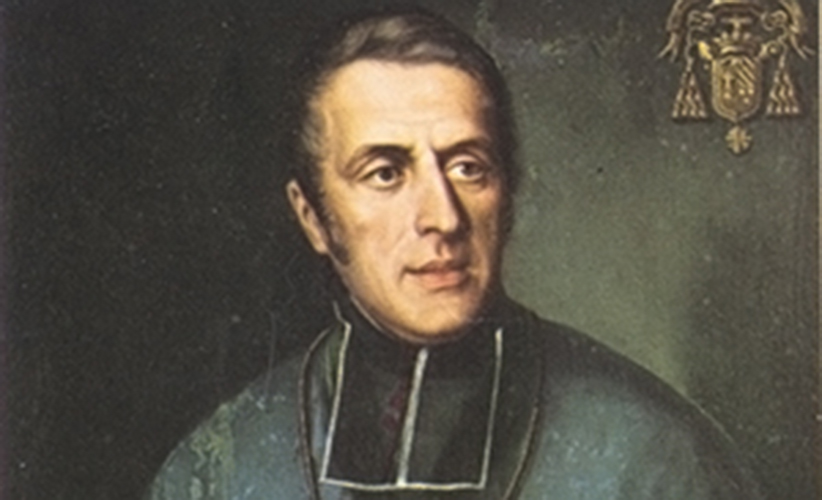St. Eugene de Mazenod was born into a family that was doomed from the beginning. His father, Charles-Antoine de Mazenod, was a member of the French aristocracy, a man of genteel breeding who had received a superb classical education. Unfortunately, by the time he reached adulthood all he possessed was his distinguished title; Charles-Antoine’s father and grandfather had squandered the Mazenod fortune years earlier.
His mother, Marie-Rose Joannis, on the other hand, came from a family that was solidly bourgeois and very rich. When Charles-Antoine and Marie-Rose announced their engagement, the bride’s family insisted that the traditional dowry remain in Marie-Rose’s name, out of the reach of Charles-Antoine. This was the just the first instance of the Joannis clan’s interference in the life of the Mazenod family.
Although they held Charles-Antoine in contempt, in the interest of seeing Marie-Rose comfortable, the Joannis family did keep a steady stream of money flowing into the couple’s bank account, but such generosity came at a price. Marie-Rose’s mother meddled in every decision the couple tried to make. Her emotionally unbalanced aunt demanded constant attention, and the Joannis women took every opportunity to humiliate Charles-Antoine by reminding him that he had come into their family penniless.
On Aug. 1, 1782, in Provence, Eugene de Mazenod was born into this wretched family. While he was still a little boy, his family’s dysfunction was further complicated by the French Revolution that claimed the lives of thousands of aristocratic families. In 1791, to escape the guillotine, the Mazenods fled to Venice. Four years later Marie-Rose walked out on her husband and her son, returned to France and filed for divorce. Once the divorce had been finalized, she wrote to her ex-husband, “Now you have nothing.”
Eugene found refuge from his miserable home life in the Church. In 1808 he entered the seminary in Paris; in 1811 he was ordained a priest. He asked to be assigned to work among the poor country people in the south of France. His superiors granted his request, in part because this was his home region and he spoke the local dialect.
The French Revolution had caused tremendous disruption to religious life throughout the country. Those bishops, priests, monks and nuns who had not been killed were in exile or had disgraced their vocation. Churches and schools stood abandoned; convents and monasteries lay in ruins. An entire generation had grown up with virtually no religious instruction.
By 1815, Eugene had assembled a band of dedicated priests who worked with him as missionaries in the rural areas of Provence, bringing people who were nominally Christian back to the Faith. In recognition of the group’s success, the pope organized them into a new religious order and gave them their name — the Oblates of Mary Immaculate. An oblate is someone who offers his life and all his efforts to God, or in this case the Blessed Virgin Mary, for the good of others. As for Eugene, his reward was being named bishop of Marseilles, an assignment he held from 1837 until his death in 1861.
St Eugene was never able to reconcile his parents or bring peace to his family, but he and his fellow priests did bring countless thousands back to the Church.
St. Eugene de Mazenod is the patron saint of dysfunctional families. His feast day is May 21.
Craughwell is the author of more than 30 books, including “Saints Behaving Badly” and “This Saint Will Change Your Life.”

